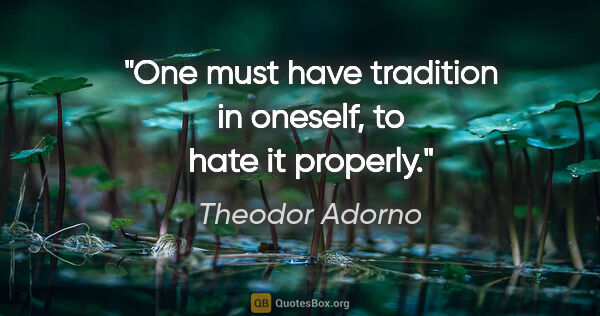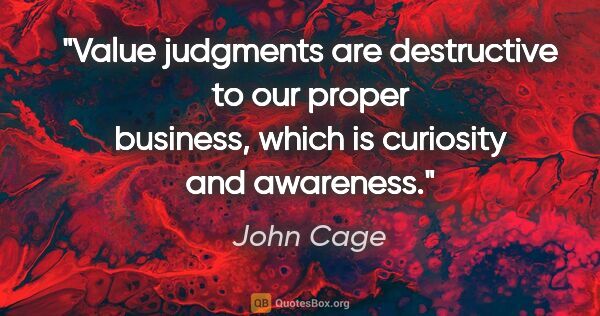Properly Quotes (page 15)
The artist usually sets out -- or used to -- to point a moral and adorn a tale. The tale, however, points the other way, as a rule. Two blankly opposing morals, the artist's and the tale's. Never trust the artist. Trust the tale. The proper functions of a critic is to save the tale from the artist who created it.
David Herbert Lawrence

If you sit down and think about it *sensibly*, you come up with some very funny ideas. Like: why make people inquisitive, and then put some forbidden fruit where they can see it with a big neon finger flashing on and off saying 'THIS IS IT!'? ... I mean, why do that if you really don't *want* them to eat it, eh? I mean, maybe you just want to see how it all turns out. Maybe it's all part of a great big ineffable plan. All of it. You, me, him, everything. Some great big test to see if what...
Neil Gaiman
civilization has absolutely no need of nobility or heroism. These things are symptoms of political inefficiency. In a properly organized society like ours, nobody has any opportunities for being noble or heroic. Conditions have got to be thoroughly unstable before the occasion can arise. Where there are wars, where there are divided allegiances, where there are temptations to be resisted, objects of love to be fought for or defended–there, obviously, nobility and heroism have some sense.
Aldous Huxley
But are there philosophical problems? The present position of English philosophy - my point of departure - originates, I believe, in the late Professor Ludwig Wittgenstein's doctrine that there are none; that all genuine problems are scientific problems; that the alleged propositions or theories of philosophy are pseudo-propositions or pseudo-theories; that they are not false (if they were false, their negations would be true propositions or theories) but strictly meaningless combinations of...
Karl Popper
But if she'd come then, she would never have properly appreciated it. She'd have seen the happy crowds and the Union Jacks and the bonfires, but she'd have no idea of what it meant to see the lights on after years of navigating in the dark, what it meant to look up at an approaching plane without fear, to hear church bells after years of air-raid sirens. She'd have had no idea of the years of rationing and shabby clothes and fear which lay behind the smiles and the cheering, no idea of what...
Connie Willis



